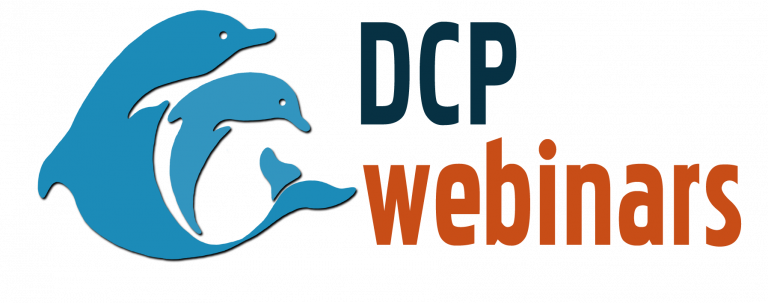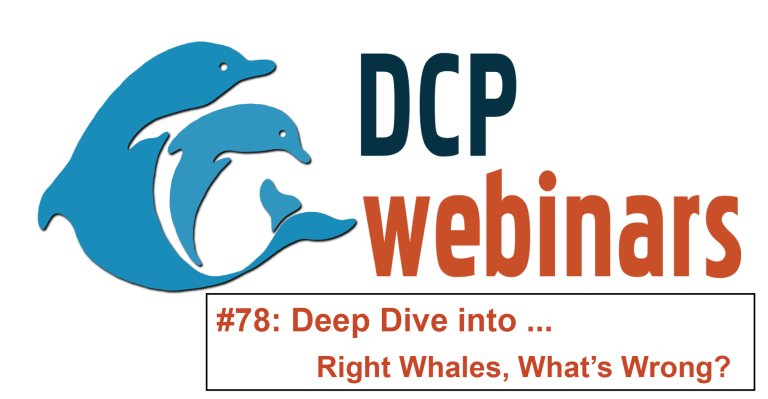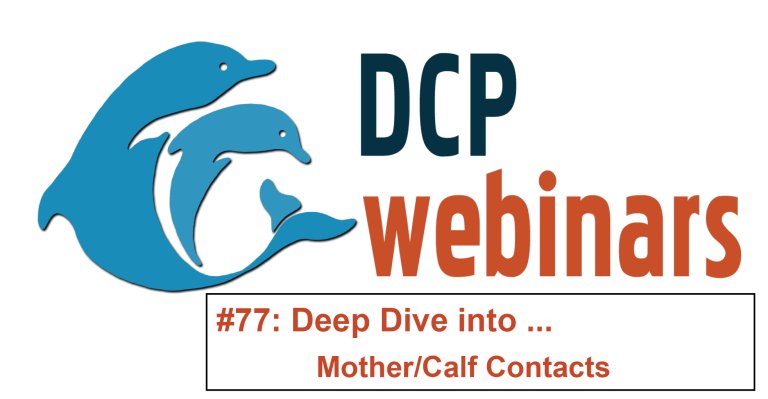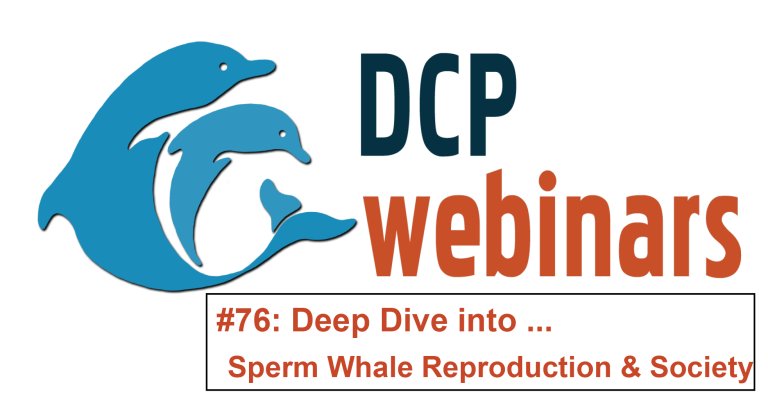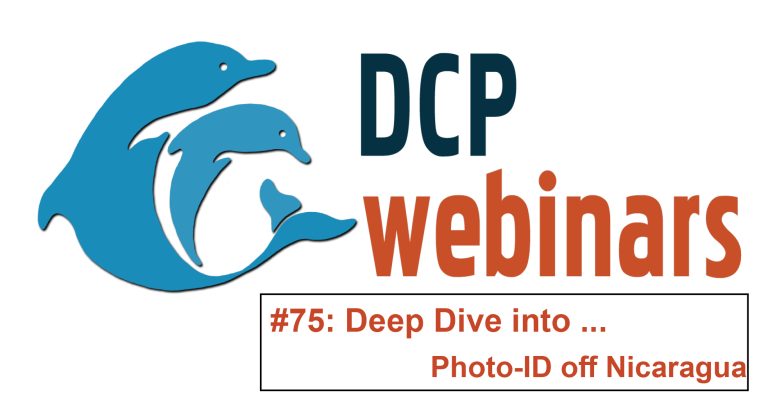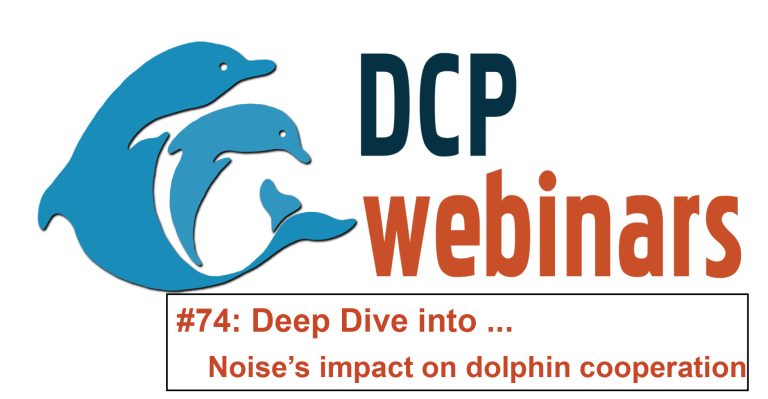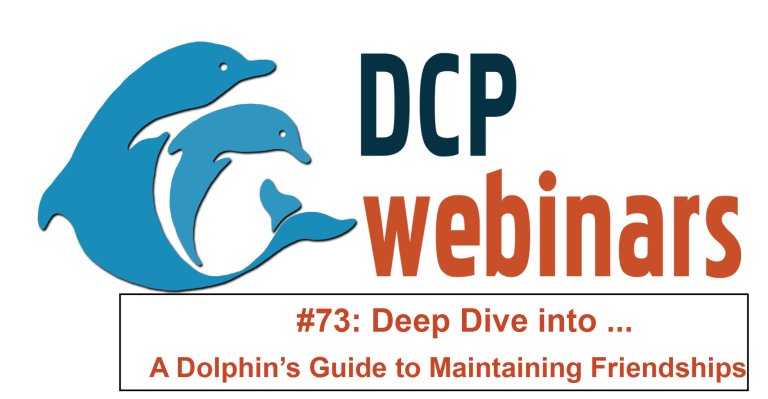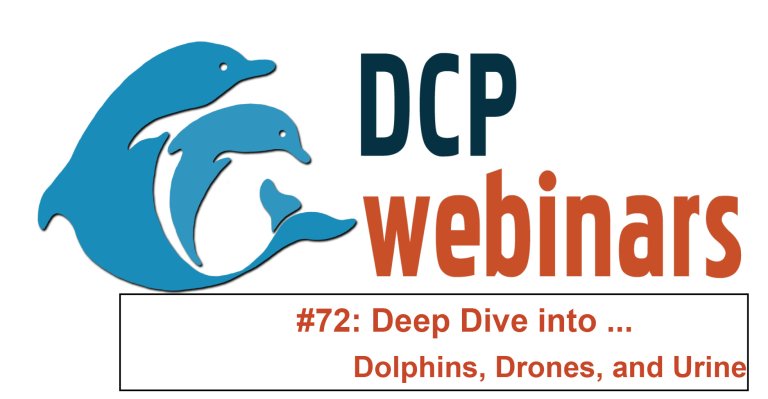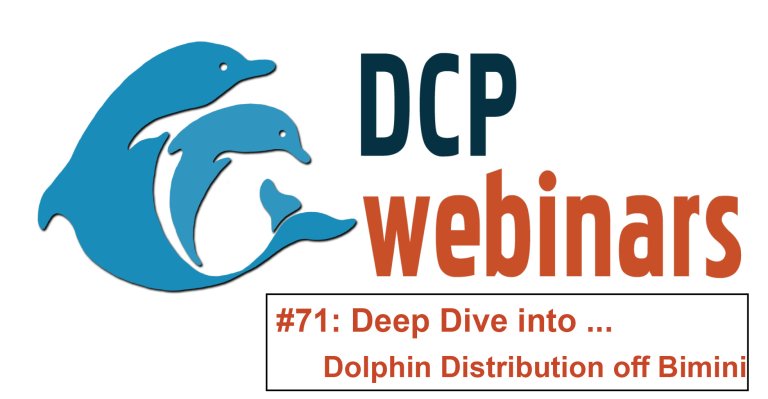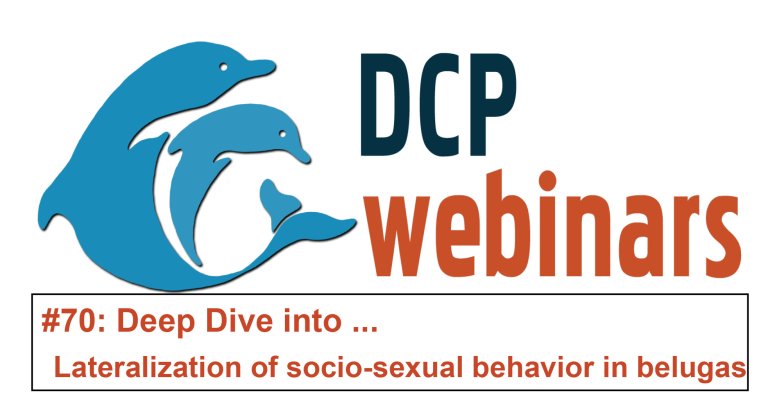Below you’ll find an archive of DCP’s webinars. “DCP Dives Deep into…” programs are geared toward ages 14+ and “DCP Dolphin Lessons” are designed with ages 6 – 13 in mind. But, all are family-friendly, so all ages are encouraged to listen and watch. If you are new to DCP, scroll down and be sure to check out our very first webinar, “Dolphin Communication Project: Who We Are” to get a better sense of who we are and what we do. Interested in more online content? Our podcast, The Dolphin Pod, can be found at this link, Spotify, Apple, or by looking under ‘The Knowledge Hub’ tab.
And, don’t miss our Kids Science Activities!
Upcoming Free Webinars
Spring is Coming, with New Webinars! Next up: Risky Interactions on 30 April! Click for more info.
DCP Deep Dive: Right Whales, What’s Wrong?
CW: Conversations about whale deaths, photographs of entangled, injured, and dead whales are included in this talk. North Atlantic Right Whales (NARWs) are critically endangered and face many threats throughout their habitat on the Atlantic coast. Learn more about the plight of NARWs, including their life history, threats they face, and how you can help, from Lowcountry Marine Mammal Network's Lauren Rust.
DCP Deep Dive: Mother/Calf Contacts
The relationship between a bottlenose dolphin mother and her calf is vital for the survival of the young, but many of the details are yet to be fully understood. This talk explores the physical contacts that are shared between these individuals and suggests explanations for the patterns found in DCP’s recent study. This Deep Dive was presented by Savanna Duda on 20 March 2024.
DCP Deep Dive: Sperm Whale Reproduction & Society
Sperm whales are well known for being deep-diving predators with extraordinary hunting abilities. They also have a fascinating social system, much of which is shaped by their reproductive strategies and calf-caring behavior. This talk goes beyond DCP’s team and main study species, reviewing what scientists currently know about sperm whale sociality and reproduction, as well as outstanding questions. This presentation was given by Ana Eguiguren on 6 Feb 2024.
DCP DEEP DIVE: Photo-ID off Nicaragua
Bottlenose dolphins are fascinating animals that are studied in a lot of places in the world. Scientists use their dorsal fins to individually identify them and unravel their social structure. For this talk, we headed away from DCP’s field sites to dive in with Joëlle De Weerdt to learn more about the dolphins she studies off Nicaragua.
DCP Deep Dive: Human-made noise impacts bottlenose dolphins’ ability to work together
Human-made noise poses a significant problem for a wide range of animals. In this talk Pernille Meyer Sørensen presents the results of a recent study done in collaboration with the Dolphin Research Center, in Florida, in which they investigated how noise affected two dolphins working together.
DCP Deep Dive: A Dolphin’s Guide to Maintaining Friendships
Emma Chereskin talks about the male bottlenose dolphins of Shark Bay, Australia in this "Deep Dive." These dolphins form the most complex alliance structure outside of humans. Forming alliances, and maintaining those friendships, is vital in securing paternities and protecting females from rival males. In this talk, Emma explores the wide variety of mechanisms, such as touch, synchrony, and sound, used by these dolphins to maintain their decades-long friendships.
DCP Deep Dive: Dolphins, Drones, and Urine
Dr. Jason Bruck takes viewers on a meandering journey studying one of the world’s coolest animals. This talk covers communication, cognition, and conservation in dolphins and helps illuminate what we know about dolphin behavior as well as how we can use drones to evaluate dolphin health.
DCP Deep Dive: Distribution of dolphins in nearshore Bimini waters
In this talk, you’ll learn more about DCP’s study on the sympatric distribution of Atlantic spotted and bottlenose dolphins immediately off Bimini’s shores. How do these two dolphin species stay separate? And what type of behaviors do we observe in this nearshore area? Two of the authors, Kel Melillo-Sweeting and Christine Ribic led this talk. The topic was also presented at the SMM conference in August 2022 and featured in a 2022 episode of The Dolphin Pod.
DCP Deep Dive: Lateralization of socio-sexual behavior in belugas
*CW: This talk discusses sexual interactions in non-human animals. For mature audiences.* In this talk from Dr. Lilley, you’ll learn more about the socio-sexual behavior of belugas (or white whales) and the recent research that examined whether beluga socio-sexual behavior is lateralized.

